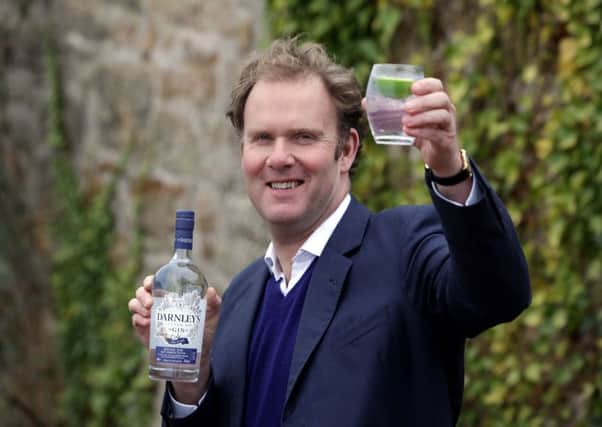Gin entrepreneur raises a glass to Fife homecoming
This article contains affiliate links. We may earn a small commission on items purchased through this article, but that does not affect our editorial judgement.


Darnley’s Gin was previously distilled in London, but has moved to the East Neuk, where its founders, the Wemyss family, have lived and worked for centuries.
The firm’s owner and managing director William Wemyss told The Scotsman that the site, which saw a derelict farm cottage in the grounds of its sister business Kingsbarns Whisky Distillery undergoing an extensive, year-long refurbishment, “looks fantastic and will be a really good addition”.
• READ MORE: Scottish gin ‘a major export’
Advertisement
Hide AdAdvertisement
Hide AdThe company also said the new site “marks a significant investment for the business and will support Darnley’s Gin’s ambitious growth plans both at home and in overseas markets, creating a truly Scottish gin”.
Wemyss said Darnley’s exports into 23 markets and is looking to increase sales. “We believe that giving the brand a home here in Fife close to its roots will improve the authenticity and provenance of the brand,” he added.
He also stressed that its London Dry Gin, which harnesses almost two centuries of his family’s expertise, will keep its flavour and recipes despite the move, which will enable more experimentation with the likes of different botanical combinations.
“It will allow us to get much greater control of the process and hopefully make more innovative products that consumers will be able to enjoy.”
As for where it is eyeing expansion, Wemyss said: “We’re looking to grow the brand both within the UK and particularly in Scotland, which is very much our home market, and then increase the amount we export into these 23 markets in which we have a presence.”
He highlighted core export markets such as the US, Germany and Belgium, and said he expects the trend for premium gin to continue to grow.
Figures from Euromonitor published in December forecast that domestic sales of gin will outstrip those for Scotch whisky by 2020. By that date, sales of blended Scotch are expected to fall to £1.17 billion, with those for gin set to climb to £1.37bn.
Advertisement
Hide AdAdvertisement
Hide Ad• READ MORE: Scotland’s food and drink exports rise 11% in a year
Darnley’s said the distillery uses traditional techniques and craftsmanship, with copper stills from Italy, and Fife local Scott Gowans its newly appointed gin distiller.
The gin was launched in 2010 by the Wemyss Family, a key name in wine and spirit-making in Scotland. Their seat in the Kingdom of Fife was established in the 14th century where, in 1565, Mary Queen of Scots first met her future husband, Lord Darnley, which inspired the gin’s name many centuries later.
The brand underwent a major refresh earlier this year, with new packaging and the addition of new products.
Wemyss also said he is looking forward to welcoming visitors and to getting production under way in the cottage, stating: “From a business perspective this is a momentous investment for the future of Darnley’s Gin, following on from the recent refresh of our brand and the growth in demand for our high-quality gin around the world.
“It’s also very exciting for us to be opening the doors of our ‘cottage distillery’… especially as the number of visitors seeking Scottish food and drink experiences continues to rise.”
Edrington hasn’t any grouse with weak pound
Famous Grouse maker Edrington saw a one-third jump in profits to £91 million partly helped by the post-Brexit vote slide in sterling in its latest trading year, writes Martin Flanagan.
That compared with a profit of £69.2m in the previous 12 months. Edrington, whose other whisky brands include The Macallan malt, also said that it had reaped the benefits of an 18 per cent jump in brand investment to £110.7m.
Advertisement
Hide AdAdvertisement
Hide AdThe company, which since the financial year end has bought the Glenrothes Speyside single malt for an undisclosed sum, said core revenues rose 6 per cent to £668m.
• READ MORE: Edrington swallows Glenrothes single malt brand
Ian Curle, group chief executive, said: “2016-17 was a significant year of growth for Edrington despite a difficult backdrop of economic and political volatility, and a fiercely competitive marketplace.”
In the blended Scotch whisky market, the company said Famous Grouse strengthened its leading position, and it is now thought to account for about one in three of all bottles sold in the UK.